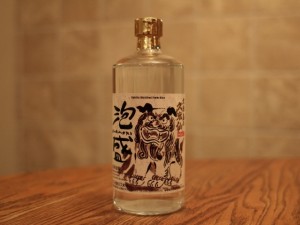Kumejima’s Kumesen
Kumesen was our first Awamori. We'd read about these unique Okinawan spirits and were drawn to the artfully drawn lion-god on the stout bottle. As our first, it still stands up as what we expect from the style, though we've come to learn that Awamori can be as diverse and complex as single malt scotch. There is no one flavor that captures the essence of these full bodied, traditionally distilled spirits.

